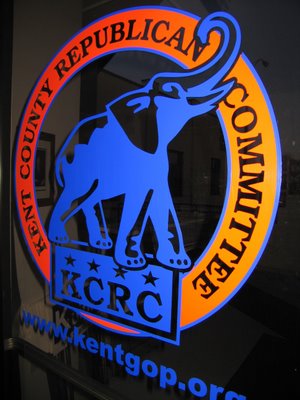 While Democrats were busy trouncing Republicans in the recent national election, outgoing GOP Party Chairman Ken Mehlman took to MSNBC with some advice in anticipation of the 2008 campaign: "We've got to be a Big Ten party," Mr. Mehlman said, acknowledging the political significance of critically important swing states Ohio, Wisconsin, and Michigan for presidential hopefuls.
While Democrats were busy trouncing Republicans in the recent national election, outgoing GOP Party Chairman Ken Mehlman took to MSNBC with some advice in anticipation of the 2008 campaign: "We've got to be a Big Ten party," Mr. Mehlman said, acknowledging the political significance of critically important swing states Ohio, Wisconsin, and Michigan for presidential hopefuls.Republicans certainly have significant work to do in the greater Great Lakes. Prior to election night GOP leaders claimed majorities in five state legislatures (IN, MI, OH, PA, and WI) and held four gubernatorial seats (OH, NY, IN, and MN), according to an election analysis prepared by the Great Lakes Commission. Post election, Republicans now control one state legislature (OH) and two governorships (IN and MN).
"It is worth noting that Democratic governors now control states that carry 295 electoral votes, much more than the 270 needed to win the presidency," the GLC analysis notes.
The question is how will Republicans compete for the Great Lakes vote? Will they attempt to divide and conquer with distractions like tax cuts, flag burning, and gay marriage? Or will they - and their Democratic rivals - strive to unite the people of the economically desperate Great Lakes - and the nation - by outlining a serious agenda to promote energy independence, education, health care, and other responsible investments in America's future?
Certainly Mississippi Republican Senator Trent Lott's return to leadership does little to signal a significant shift in party thinking.